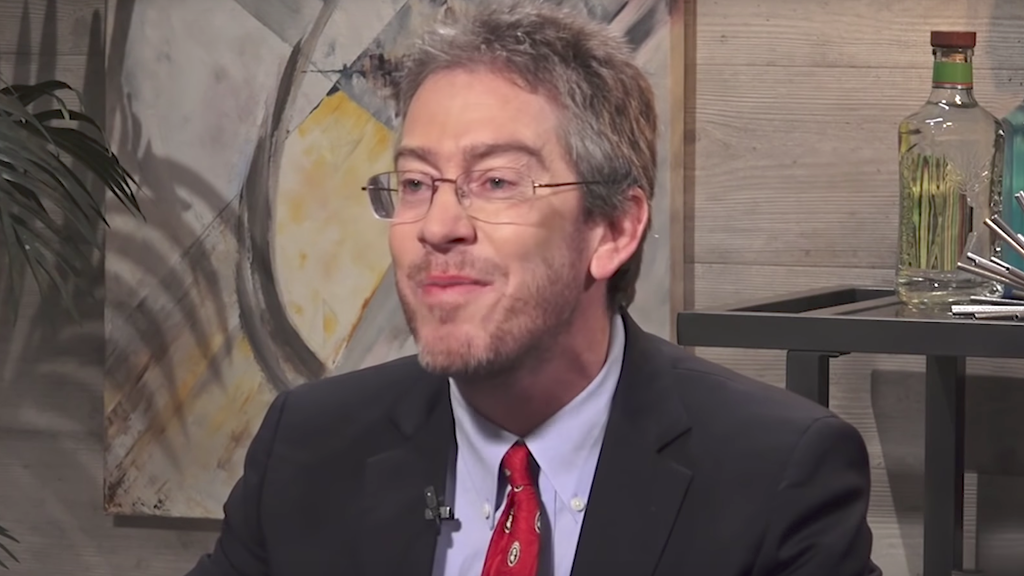Category:Role of Government


7 shocking incidents created by lockdown restrictions
September 9, 2021 | Post
Lockdown restrictions have disrupted normal life and led to to a range of shocking and bizarre incidents and developments as governments take on new powers

Australia’s draconian lockdown restrictions must end
August 25, 2021 | Post
The Australian government’s heavy handed response to dissent against its draconian lockdown restrictions is unacceptable for a supposedly free society.

How to Empower African Entrepreneurs?
June 10, 2021 | Video
We hear from June Arunga, a Kenyan technology entrepreneur and CEO of Usafi Comfort Limited, about the issues faced by many entrepreneurs around the African continent to keep their businesses running.

The Lingering Effects Of The Prohibition Era
May 21, 2021 | Video
The Prohibition Era is a dark time in US history: bootleggers, corrupt politicians, mafia organizations… It is gone, but alcohol laws are still reminiscence of that time. We realized this only after the pandemic.
In this video, we talked to Jacob Rich, policy analyst of the Reason Foundation/Magazine, discussed the history of alcohol policies in the US and how to improve them for the future.

A Libertarian Pandemic Policy
April 28, 2021 | Video
All countries are facing the same crisis: Covid-19.
Lockdown, quarantine, closing business, closing borders, and so much more…
But what is the libertarian view over this whole quarantine crisis?
The massive power that governments are enjoying in today’s world does not make them more eligible to solve big crises. Many experts pointed out the fact that equipping governments with more power only makes them more sluggish.
We have seen this first-hand: the US and the UK have a comparatively worse track record of containing the disease, and it seems like they will also be worse in controlling the crashing recession that is closer to us every day. So… what do we have, then?
Learn Liberty spoke with Michael Huemer, a philosophy professor at the University of Colorado, about the libertarian response to COVID-19.
In this video, discover the answers to the following questions:
What could a limited government solution look like?
What role does individual responsibility play in a pandemic?
What is a common solution that works in every setting?
#COVID19 #PandemicCrisis #LibertarianSolution

We are not equal under the law
April 28, 2021 | Video
Two days before Breonna died, we discussed the War on Drugs with Aaron Bosset, founder of the Black Cannabis Commission.
His words are even more relevant today.
The War on Drugs is not about race alone. The welfare state, qualified immunity, police unions, and the effects of these broken institutions all play a part. But it is important for us to give notice to this major piece of the puzzle.

3 Different Ways Constitutionalism Affects Liberty
April 28, 2021 | Video
Lesson 4 of our Law 201 Course: Find out how the separation of powers, federalism, and judicial affect liberty, and how those aspects compare to other systems of government.

Zora Neale Hurston: a genius of the south and anti-imperialist voice
March 30, 2021 | Post
Within and beyond her literature, Zora Neale Hurston was an outspoken anti-communist who opposed both the New Deal and interventionism abroad

Bret Weinstein: Left and Right Libertarians Should Unite
January 15, 2018 | Video
Bret Weinstein, evolutionary biologist and former professor at Evergreen State College, makes the case that those who value liberty—whether we lean right or lean left—should unite in its defense. Excerpted from Spiked Magazine’s ‘Unsafe Space Tour’ panel discussion at New York Law School.

The politics of "The Last Jedi"
December 20, 2017 | Post
One Resistance fighter says that the movement will win “not by fighting what we hate, but by saving what we love.” But what do they love?

Life isn’t fair, but can government help that?
October 25, 2017 | Post
Luck egalitarianism is, roughly, the view that inequalities in life prospects resulting from luck are unjust. If Amy has better job opportunities than Bob because she happened to have parents who could afford to send her to a fancy private school, that’s unfair.

There's one situation where classical liberals can justify foreign intervention.
October 3, 2017 | Post
For any kind of libertarian/classical liberal, the question with foreign policy is which course of action is going to most maximize liberty, both in the country that is potentially doing the intervening and the part of the world where the intervention might take place.

Why it’s so hard for government to fix social problems
August 28, 2017 | Video
What if the government can’t solve our problems because the government doesn’t really exist? Prof. Mike Munger explains his “unicorn” theory of the state.

Breaking the wheel of Westeros: why heroes aren't enough
August 25, 2017 | Post
As much as we love Daenerys and Jon, they and their real-world counterparts are unlikely to give us a better wheel on their own.

Most social scientists can’t predict the future. But this philosopher did.
July 20, 2017 | Post
How a “nasty little man” predicted the 2nd French Revolution and the Cold War.

Highlights from our Reddit AMA with Professor Michael Munger
July 18, 2017 | Post
Last week, Professor Michael Munger joined us on Reddit for an “Ask Me Anything” conversation as part of the Learn Liberty Reddit AMA Series.Dr. Munger is an esteemed Professor of Political Science, Economics, and Public Policy at Duke University. He has authored/co-authored 7 books and over 200 scholarly articles. A long-time friend of the Learn Liberty project, he […]

Rebellion or stability: Which makes a healthier nation?
July 13, 2017 | Post
Is a little rebellion now and then a good thing? Or does a strong nation stem from the veneration that time bestows upon its government?

Did big government make us rich?
July 11, 2017 | Post
Why are Western countries like the United States and Germany so much richer today than other countries around the world?

Reddit AMA with Professor Michael Munger of Duke University
July 7, 2017 | Post
This Tuesday, the Learn Liberty Reddit AMA Series continues with Michael C. Munger, Professor of Political Science at Duke University. UPDATE: The AMA is now live! Prior to his tenure at Duke, where he chaired the Department of Political Science for 10 years before coming to serve as Director of Undergraduate Studies, Professor Munger has also taught at Dartmouth […]

Highlights from our Reddit AMA with Professor Bryan Caplan
June 28, 2017 | Post
“From the evidence I’ve seen, propaganda works – though not nearly as well as the propagandists would hope.”

Reddit AMA with Economist and Iconoclast, Professor Bryan Caplan
June 15, 2017 | Post
Bryan Caplan is a Professor of Economics at George Mason University. He is a prolific blogger and author of three books: The Myth of the Rational Voter: Why Democracies Choose Bad Policies (2007), Selfish Reasons to Have More Kids: Why Being a Great Parent is Less Work and More Fun Than You Think (2011), and the forthcoming The Case […]

Sports betting should be legal across the country. Here’s why.
June 12, 2017 | Post
Treating problem gamblers like problem drinkers makes sense. Criminalizing gambling for everyone does not.

“Walk your bike!” — Formal rules and informal order
May 6, 2017 | Post
She dutifully got off and walked her bike, and everyone behind her did the same … for about ten feet! Then they hopped back on and kept pedaling.

Dan Carlin – How Crises and Corruption Can Lead to Change
May 1, 2017 | Video
How much corruption can a government handle before it reaches a crisis point? Conversation between the radical Dan Carlin & Dave Rubin. Watch the full interview here.

